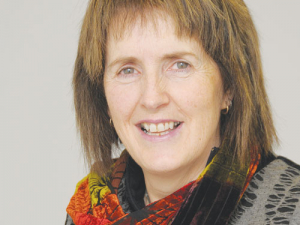University of Waikato breaks ground on new medical school
The University of Waikato has broken ground on its new medical school building.
 Chair of the NZ Rural GP Network Sharon Hansen says the need has never been greater for a well-trained primary healthcare workforce.
Chair of the NZ Rural GP Network Sharon Hansen says the need has never been greater for a well-trained primary healthcare workforce.
A proposal for a National School of Rural Health (NSRH) by the universities of Auckland and Otago is too little, too late: training of rural doctors needs a totally new approach.
That’s the opinion of Waikato District Health Board (WDHB) chief executive Dr Nigel Murray, who was taken by surprise by the Auckland-Otago proposal.
Waikato announced its own plans last year to set up Waikato Graduate Entry Medical School for training rural doctors. The joint proposal by the WDHB and Waikato University is under government consideration.
It recently was boosted by a $5 million donation by philanthropist Sir Owen Glenn.
Auckland and Otago universities both have medical schools – the only ones in New Zealand -- and they now propose the NSRH. They are working with the Royal New Zealand College of General Practitioners (RNZCGP) and the New Zealand Rural General Practice Network (NZRGPN).
Both proposals were to be discussed last Friday at the NZRGPN’s National Rural Health Conference in Wellington.
NZRGPN chairperson Sharon Hansen says the need has never been greater for a well-trained primary health care workforce. Rural people are less able than urban people to obtain the services of general practitioners, so the Auckland-Otago proposal is a timely move, she says.
“This proposal is a targeted approach to solving looming issues of workforce and service delivery in rural NZ. It’s also to get health equity for rural communities and health outcomes for rural people on par with their urban counterparts.”
The network is planning to include a rural component in the training of all health profession students. This would entail a ‘dispersed inter-professional faculty’ with its own leadership, at up to 20 sites in rural NZ.
But Waikato’s Dr Murray told Rural News it is much too little, too late.
“This has been a growing issue for several decades. They have been funded to try to shore up this problem…. We still see only 15-17% of graduates going into primary care (general practice) and even fewer going into general practice in rural communities.
“Every medical school should be trying to train doctors for the needs of their community. Their sudden wake-up to this is a bit concerning. But congratulations to them for starting to think about it.”
But their proposal would not work for rural communities, Murray says. It would not get the kind of uptake and community engagement the proposed Waikato rural medical school would.
He says Auckland and Otago should be training GPs for the growing urban needs.
Research and international experience shows that for rural communities you need a new, unique academic culture that’s embedded in the community, Murray says.
“The curricula need to be strongly guided by the community and the community needs to own these students coming through.
“To blister on with a new programme of rural and provincial engagement under an existing urban-based [medical school] and hope and pray it will produce the GPs they have been unable to produce in the last several decades is not going to work.
“You need something totally new from the ground up that’s got community and iwi engagement and full participation in the selection process of these students.”
Murray says Otago and Auckland produce excellent doctors, but few of them go into the provinces and rural communities.
“We rely on international rural doctors in the provinces and rural areas. We want NZers in those roles.
We thank the international medical graduates – they have done a fabulous job helping NZ out. But now it is time for us to grow our own, who come to the communities from a new medical school that doesn’t have the old traditions.”
New DairyNZ research will help farmers mitigate the impacts of heat stress on herds in high-risk regions of the country.
Budou are being picked now in Bridge Pā, the most intense and exciting time of the year for the Greencollar team – and the harvest of the finest eating grapes is weeks earlier than expected.
The Real Estate Institute of New Zealand (REINZ) has released its latest rural property report, providing a detailed view of New Zealand’s rural real estate market for the 12 months ending December 2025.
Rural retailer Farmlands has released it's latest round of half-year results, labeling it as evidence that its five-year strategy is delivering on financial performance and better value for members.
OPINION: "We are back to where we were a year ago," according to a leading banking analyst in the UK, referring to US president Donald Trump's latest imposition of a global 10% tariff on all exports into the US.
DairyNZ says the Government’s proposed Resource Management Act reform needs further work to ensure it delivers on its intent.

OPINION: A mate of yours truly reckons rural Manawatu families are the latest to suffer under what he calls the…
OPINION: If old Winston Peters thinks building trade relations with new nations, such as India, isn't a necessary investment in…